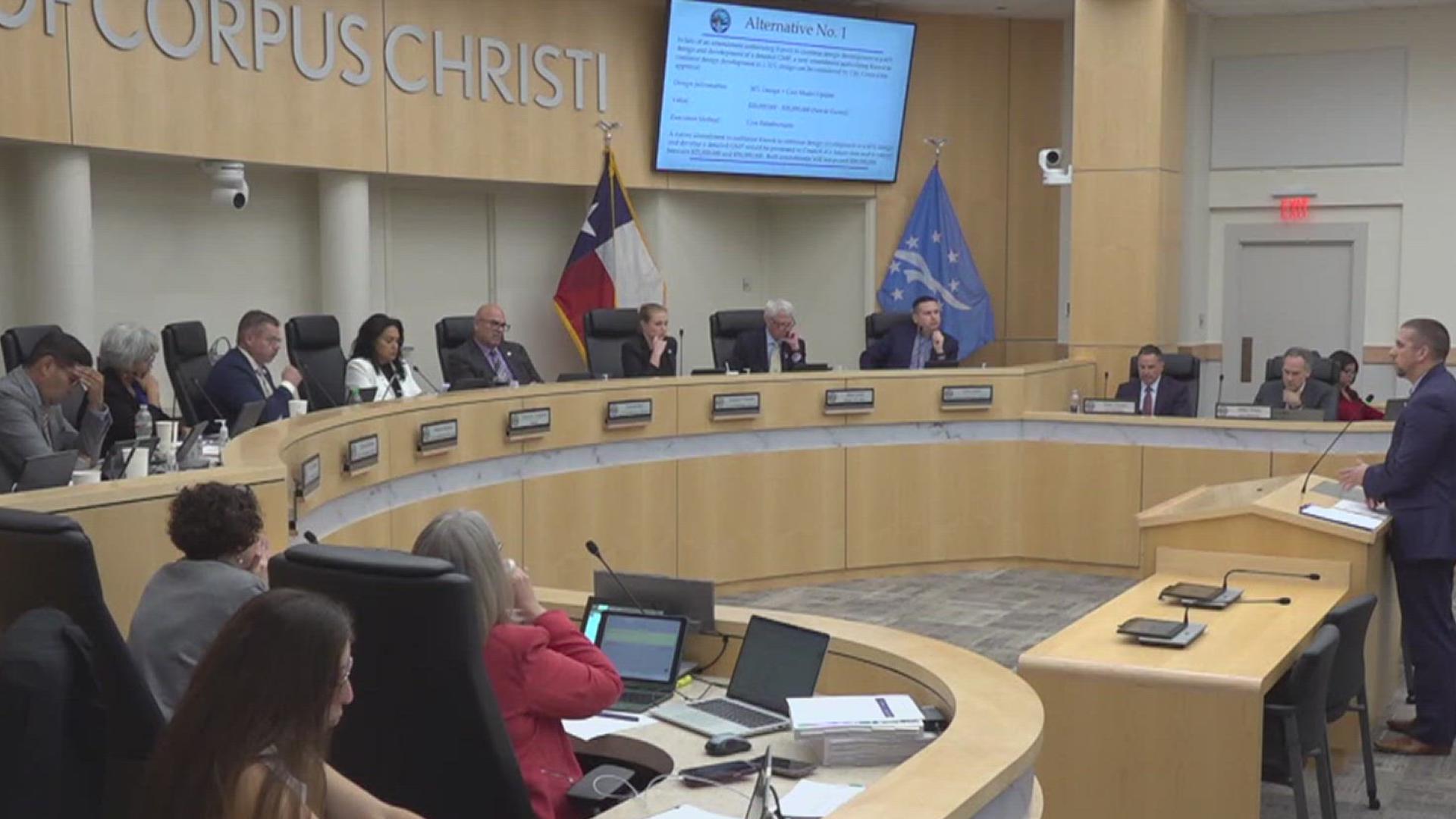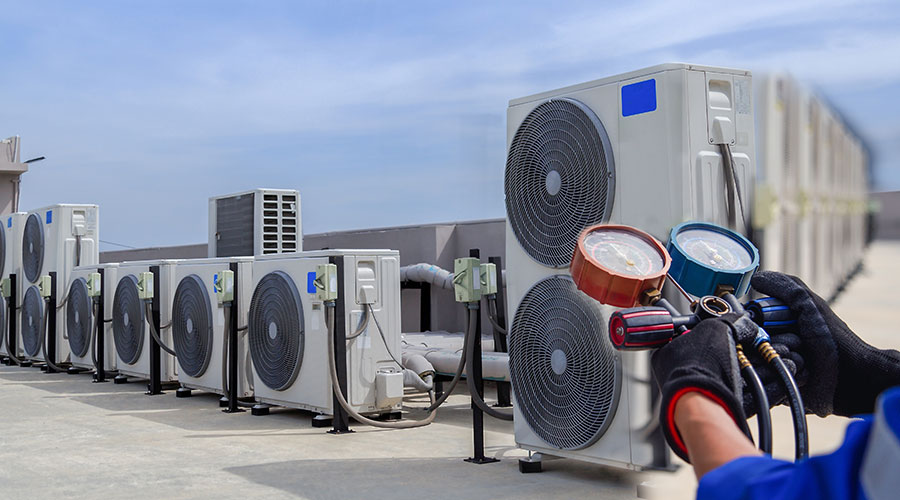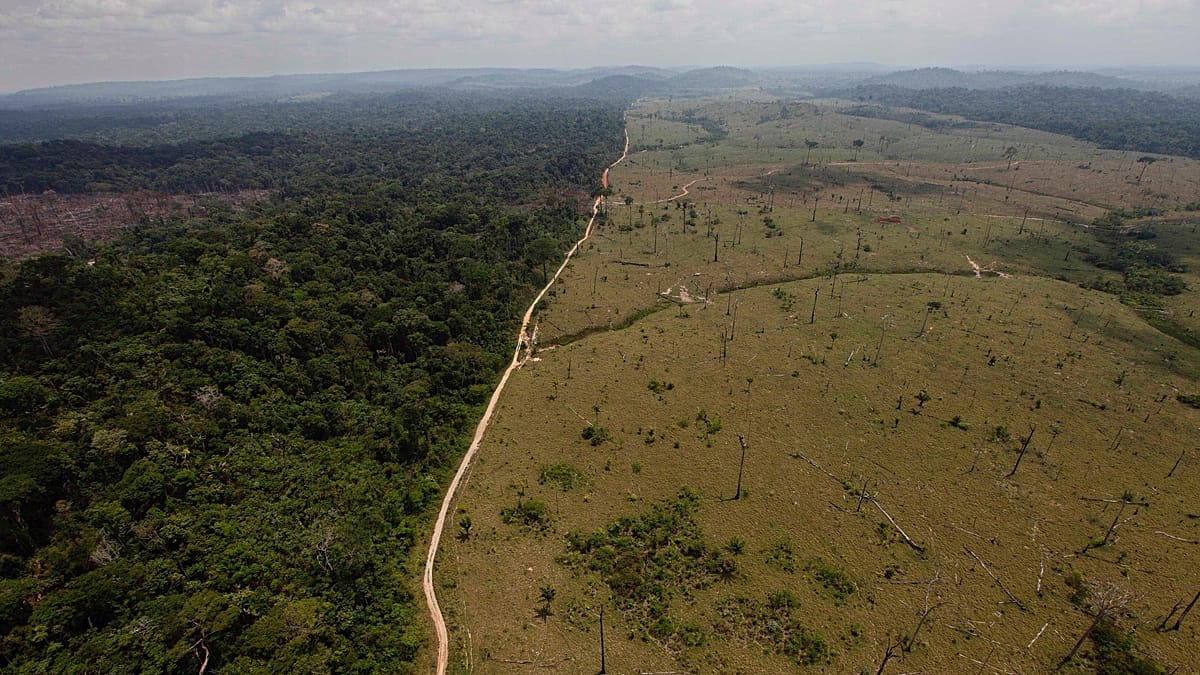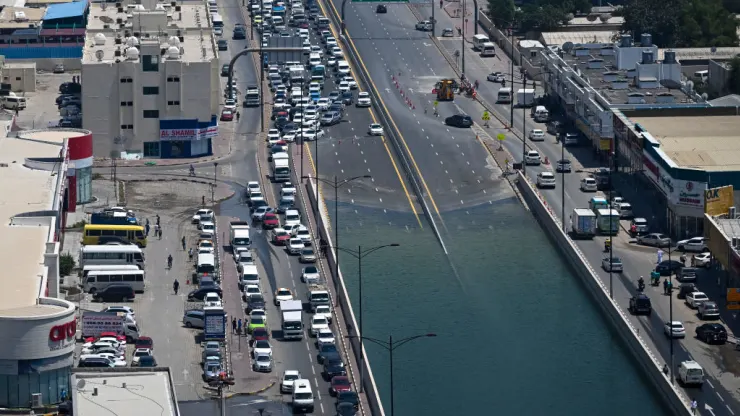City looking to buy a desal plant for some 650 million dollars – kiiitv.com

Report on Corpus Christi’s Water Security and Desalination Initiatives
The City of Corpus Christi is actively pursuing strategies to secure a long-term, sustainable water supply, a critical measure for achieving Sustainable Development Goal 6 (Clean Water and Sanitation) and ensuring the resilience of the urban environment as per SDG 11 (Sustainable Cities and Communities). Recent discussions between city leadership and the Nueces River Authority have centered on desalination projects as a primary solution to meet future water demands.
Harbor Island Desalination Project Proposal
A significant proposal under review involves a partnership with the Nueces River Authority to develop a large-scale desalination plant on Harbor Island. This collaboration aligns with SDG 17 (Partnerships for the Goals) by leveraging joint efforts to build resilient public infrastructure, a key target of SDG 9 (Industry, Innovation, and Infrastructure).
- Proposed Capacity: The project aims to secure up to 50 million gallons of desalinated water per day for the city.
- Financial Commitment: The Nueces River Authority has requested a $2.7 million non-refundable reservation fee from the city to reserve this capacity.
- Negotiation Point: City management is advocating for this fee to be credited against future water purchases, ensuring a fiscally sustainable investment for taxpayers. The River Authority’s board must make the final policy decision on this matter.
Alternative Strategy: Acquisition of CC Polymers Facility
In parallel, the city is exploring an alternative path to water security through the direct acquisition of the existing CC Polymers desalination plant. This strategy would provide the municipality with complete ownership and operational control over a critical water asset, directly advancing the city’s capacity for sustainable resource management.
- Action Item: The City Manager intends to submit a formal letter of interest to CC Polymers to signal a serious commitment to purchasing the facility.
- Projected Investment: The estimated cost for acquiring the plant is approximately $650 million.
- Strategic Goal: Ownership would empower the city to directly manage water production, reinforcing its ability to provide a reliable water supply and support sustainable community development in line with SDG 6 and SDG 11.
Strategic Implications for Sustainable Development
Both proposed desalination projects represent crucial investments in infrastructure necessary for guaranteeing Corpus Christi’s future water security. The successful implementation of either plan is fundamental to achieving universal and equitable access to safe drinking water (SDG 6). Furthermore, these initiatives are essential for building resilient infrastructure (SDG 9) and making the city more sustainable and inclusive (SDG 11). As these projects move forward, it will be imperative to assess and mitigate potential environmental impacts to protect marine ecosystems, in accordance with SDG 14 (Life Below Water).
Analysis of Sustainable Development Goals in the Article
1. Which SDGs are addressed or connected to the issues highlighted in the article?
-
SDG 6: Clean Water and Sanitation
This is the most prominent SDG in the article. The entire discussion revolves around the “push to secure new drinking water for Corpus Christi.” The city’s efforts to engage with the Nueces River Authority about a desalination plant directly address the need for a sustainable and reliable water supply for its citizens.
-
SDG 9: Industry, Innovation, and Infrastructure
The article discusses the development of significant infrastructure projects. The proposal to build a “future desalination plant on Harbor Island” or the option to buy the “CC Polymers desalination plant outright” are major investments in resilient infrastructure designed to guarantee the city’s water future.
-
SDG 11: Sustainable Cities and Communities
The core issue is ensuring the long-term sustainability and resilience of the city of Corpus Christi. By seeking new water sources, the city is actively planning to mitigate the risks associated with water scarcity, which is crucial for maintaining a safe and resilient urban environment for its community.
-
SDG 17: Partnerships for the Goals
The article highlights a partnership between different public entities to achieve a common goal. The meeting where “city leaders met with the Nueces River Authority to talk desalination and money” is a clear example of a public-public partnership aimed at solving a critical regional issue.
2. What specific targets under those SDGs can be identified based on the article’s content?
-
Target 6.1: Achieve universal and equitable access to safe and affordable drinking water for all.
The article’s focus on securing a future water supply is directly aimed at ensuring the continued availability of drinking water for the entire population of Corpus Christi. The negotiation over costs, such as the “$2.7 million non-refundable ‘reservation fee'” and the potential “$650 million” purchase price, relates to the affordability aspect of this target.
-
Target 6.4: Substantially increase water-use efficiency and ensure sustainable withdrawals and supply of freshwater to address water scarcity.
Desalination is an alternative to traditional freshwater sources. By pursuing this technology, the city is working to ensure a “sustainable… supply of freshwater” and directly “address water scarcity,” which is the core motivation for the projects discussed.
-
Target 9.1: Develop quality, reliable, sustainable and resilient infrastructure.
A desalination plant is a piece of resilient infrastructure designed to provide a reliable water source, independent of rainfall and traditional reservoir levels. The article details two potential projects—the Harbor Island plant and the CC Polymers facility—that fit this description, intended to “guarantee Corpus Christi’s water future.”
-
Target 17.17: Encourage and promote effective public, public-private and civil society partnerships.
The collaboration between the City of Corpus Christi and the Nueces River Authority is a direct application of this target. They are forming a public-public partnership to finance, develop, and manage a critical resource, demonstrating cooperation between governmental bodies.
3. Are there any indicators mentioned or implied in the article that can be used to measure progress towards the identified targets?
-
Indicator for Target 6.1 & 6.4: Volume of Water Secured
The article explicitly mentions a quantifiable amount of water: the city aims to “lock in up to 50 million gallons a day from a future desalination plant.” This figure serves as a direct indicator of the increased capacity and availability of the drinking water supply, measuring progress towards ensuring a sustainable supply for the population.
-
Indicator for Target 9.1: Financial Investment in Infrastructure
The article provides specific financial figures that can be used as indicators of investment in resilient infrastructure. These include the “$2.7 million non-refundable ‘reservation fee'” and the estimated cost of “$650 million” to purchase the CC Polymers plant. These amounts quantify the financial commitment to developing the necessary infrastructure.
-
Indicator for Target 17.17: Formation of Formal Agreements
The negotiation itself, such as the city’s plan to “submit a letter of interest to CC Polymers” and the ongoing discussions with the Nueces River Authority about a reservation fee, are indicators of progress in forming partnerships. A signed agreement or contract would be a definitive measure of a successful partnership.
4. Table of SDGs, Targets, and Indicators
| SDGs | Targets | Indicators Identified in the Article |
|---|---|---|
| SDG 6: Clean Water and Sanitation | 6.1: Achieve universal and equitable access to safe and affordable drinking water. 6.4: Ensure sustainable withdrawals and supply of freshwater to address water scarcity. |
The volume of water to be secured from the new source (“up to 50 million gallons a day”). |
| SDG 9: Industry, Innovation, and Infrastructure | 9.1: Develop quality, reliable, sustainable and resilient infrastructure. | The financial investment in the desalination projects (“$2.7 million non-refundable ‘reservation fee'” and a potential “$650 million” purchase). |
| SDG 11: Sustainable Cities and Communities | 11.5: Reduce the number of people affected by water-related disasters (like drought). | The implementation of projects (desalination plants) to create a drought-resilient water supply. |
| SDG 17: Partnerships for the Goals | 17.17: Encourage and promote effective public partnerships. | The formal meeting and ongoing negotiations between the City of Corpus Christi and the Nueces River Authority. |
Source: kiiitv.com

What is Your Reaction?
 Like
0
Like
0
 Dislike
0
Dislike
0
 Love
0
Love
0
 Funny
0
Funny
0
 Angry
0
Angry
0
 Sad
0
Sad
0
 Wow
0
Wow
0












































































